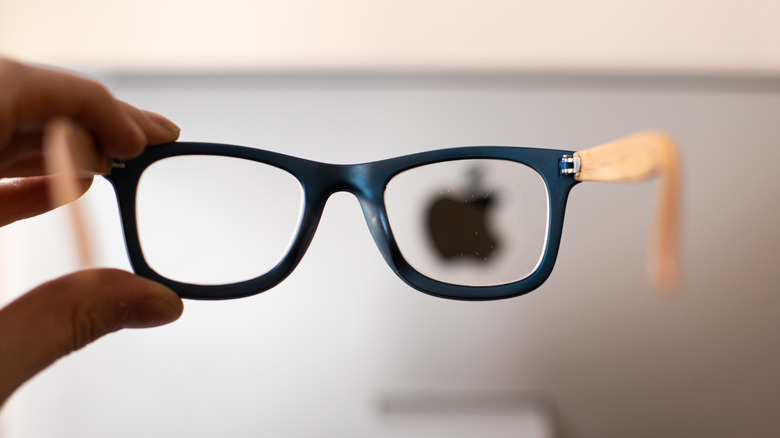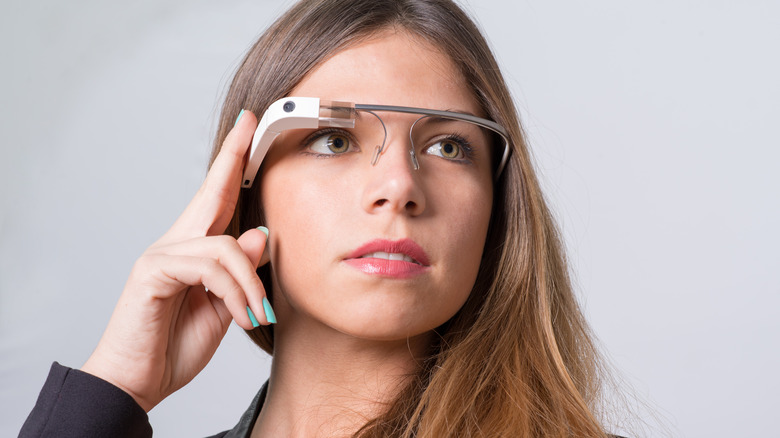This Magical iPhone Feature May Be The Key To Apple Glasses
Your iPhone experience might be about to change forever. Apple has been hard at work advancing their list of ideas for the next generation in smart gadgets and tech that'll capture the imagination and pocketbooks of consumers. Apple registered a few patents with the United States Patent and Trademark Office that've been revealed to the public today, showing these ideas. One of these ideas gives us some insight into the way Apple may be making a pair of smart glasses that'll change the way you use your iPhone.
Privacy Eyewear
With what Apple's patent describes as "Privacy Eyewear," a user may be able to view the contents of an iPhone screen while no one around them can view the same content. To get an idea of what this might look like in practice, take a peek at the following "privacy monitor hack" from all the way back in the year 2011.
That solution requires that you take apart your LCD monitor and place part of the hardware in a pair of DIY 3D glasses. In Apple's case, we're talking about a solution that's slightly more futuristic.
SEE TOO: Apple Glass will be here soon: Things you should know
In the patent revealed this week, Apple appears to be envisioning a privacy connection between a pair of smart glasses, "Privacy Eyewear", on the user, and an iPhone. A facial scan of the user is performed, Privacy Eyewear is detected, and a "privacy blur operation" is performed to "vary a graphical output" and a "blurred graphical output" is shown for all users but the one with the detected pair of smart glasses.
The patent 20210350769 as registered by Apple Inc. and shared by Patently Apple mainly deals with facial scanning and the potential for registration of advanced and varied forms of said scanning. The patent shows Apple considering "display profiles" based on different appearances of a recognized user, and very well likely expanding the uses of what we currently call Face ID, though Apple never mentions the Face ID brand by name.
Apple Glasses
It'll be interesting to see how Apple's future handling of augmented reality, head-mounted displays, and the metaverse, affect the way people view the wearing of and use of glasses. No single company has perfected the sort of vision we saw presented (in one form) by Google with Google Glass. Apple's work with augmented reality and 3D scanning over the past few years may lead to a reality where smart glasses become as common as the smartphone.
It might just be that Apple's key to making this future a reality is a feature like what's described above. If the most magical privacy feature of the iPhone requires that a person wear a special set of Apple Glasses, will the average person feel the need to own said glasses? It could be!

